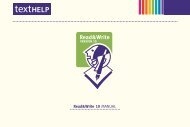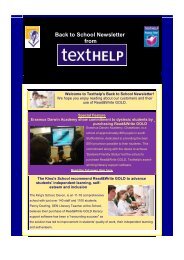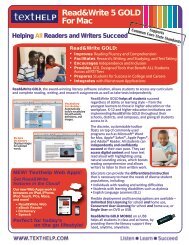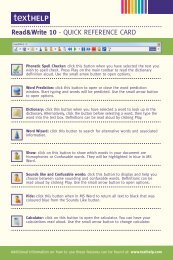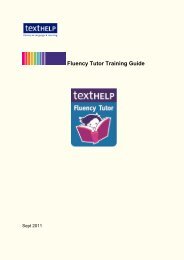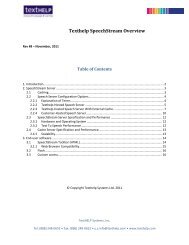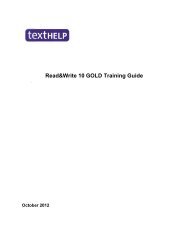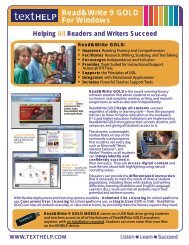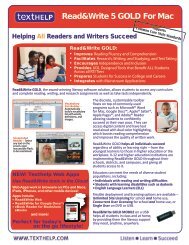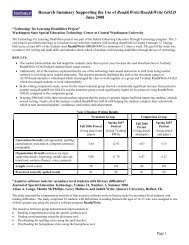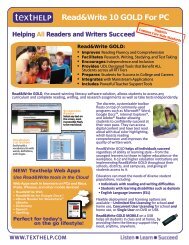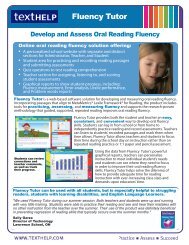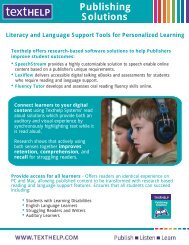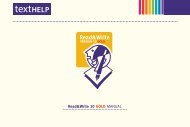01 NRDC Dyslexia 1-88 update - Texthelp
01 NRDC Dyslexia 1-88 update - Texthelp
01 NRDC Dyslexia 1-88 update - Texthelp
You also want an ePaper? Increase the reach of your titles
YUMPU automatically turns print PDFs into web optimized ePapers that Google loves.
154<br />
Research Report<br />
Appendix 5<br />
Referral items in ‘screening’ checklists<br />
Note These items may fall into three groups, which are seldom adequately<br />
distinguished: those differentiating between competent and poor readers, those<br />
differentiating between people with and without learning disabilities and those<br />
differentiating between dyslexics and ordinary poor readers.<br />
Checklist item<br />
US National Adult<br />
Literacy and Learning<br />
Disabilities Center (2002)<br />
Vinegrad (1994)<br />
Ott (1997)<br />
Direct Learning (2002)<br />
Adult <strong>Dyslexia</strong><br />
Organisation (2002)<br />
British <strong>Dyslexia</strong> Association<br />
<strong>Dyslexia</strong> Institute (2002)<br />
Everatt & Smyth (2002)<br />
1 Performs similar tasks differently • •<br />
from day to day<br />
2 Can read well but not write well, or write •<br />
well but not read well<br />
3 Can learn information presented in one •<br />
way, but not in another<br />
4 Has a short attention span, is impulsive •<br />
and/or easily distracted<br />
5 Has difficulty telling or understanding •<br />
jokes<br />
6 Misinterprets language, has poor •<br />
comprehension of what is said<br />
7Has difficulty with social skills, may<br />
misinterpret social cues<br />
•<br />
8 Finds it difficult to memorise information • • • • • • •<br />
9 Has difficulty in following a schedule, • • • • • • • •<br />
being on time, or meeting deadlines<br />
10 Gets lost easily, either driving and/or in •<br />
large buildings<br />
11 Has trouble reading maps • • • • • • •<br />
12 Often misreads or miscopies • • •<br />
13 Confuses similar letters or numbers, • • • • • •<br />
reverses them, or confuses their order<br />
14 Has difficulty in reading the newspaper, • •<br />
following small print and/or following<br />
columns<br />
15 Can explain things orally, but not in writing •<br />
16 Has difficulty in writing ideas on paper •<br />
17Reverses or omits letters, words, or • •<br />
phrases when writing<br />
18 Has difficulty completing forms correctly • • • • • • • •



